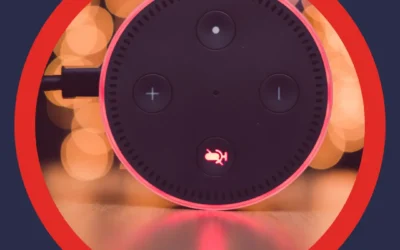Millions of Americans rely on Medicare for healthcare in retirement. Yet, despite the importance of hearing health, many are surprised to learn that traditional Medicare does not cover hearing aids. Since Medicare’s creation in 1965, hearing aids have been excluded, even though hearing loss is one of the most common chronic conditions among older adults. A research article shows how this gap in coverage affects millions of older Americans.
Hearing loss is not a small problem to ignore. It impacts relationships, social engagement, and even brain health. Untreated hearing loss has been linked to dementia, isolation, depression, and reduced quality of life. Healthy hearing, on the other hand, contributes to better communication, stronger social connections, and even longer-lasting independence.
This guide will help you understand Medicare hearing aids coverage, what options exist through Medicare Advantage, how hearing centers can help, and practical tips to make hearing care affordable.

What Original Medicare Does and Does Not Cover
Let’s start with clarity: Original Medicare (Parts A and B) does not cover hearing aids. This has been the case since 1965, when hearing aids and eyeglasses were deliberately excluded. At the time, lawmakers considered these devices to be “routine” rather than medical necessities.
That decision has left generations of retirees without financial support for hearing aids. Even though hearing loss affects nearly two-thirds of adults over 70, the gap remains. What Medicare Part B does cover are diagnostic hearing exams if ordered by your physician. This means if you have a sudden change in hearing, dizziness, or another medical condition tied to hearing, the exam may be covered.
But there are two important things Medicare will not cover:
- Hearing aids themselves. No payment is provided for the devices or for related costs.
- Routine hearing exams. Preventive or screening exams are not covered.
This exclusion is significant. The average pair of modern hearing aids costs several thousand dollars. Without coverage, many older adults delay care or go without treatment entirely. The consequences can be serious, since untreated hearing loss is linked to diseases such as diabetes, cardiovascular conditions, and others that increase health risks.
The absence of Medicare coverage means patients often feel like they are left on their own. Yet the story changes when you consider Medicare Advantage plans and the help available through local hearing centers.
Medicare Advantage: Where Coverage Exists
Unlike Original Medicare, Medicare Advantage (Part C) often includes hearing benefits. These plans are offered by private insurers approved by Medicare, and they bundle hospital, medical, and sometimes prescription drug coverage.
Here is where it matters: many Medicare Advantage plans do include hearing exams and hearing aid coverage. The details, however, vary widely. Some plans provide partial reimbursement for hearing aids. Others cover a specific dollar amount toward devices once every few years. A few plans may only offer discounts through preferred providers.
For example, one plan may provide up to $1,000 toward hearing aids every three years. Another may cover a portion of the exam and fitting costs. Some plans may limit the brands or technology levels you can choose from. This makes it essential to review your plan’s Evidence of Coverage documents carefully.
But for many retirees, Medicare Advantage is where real support begins. Plans often recognize the consequences of untreated hearing loss and try to address the gap left by Original Medicare.
To make this more concrete, let’s step into a real-life scenario.

The Reality of Navigating Medicare Hearing Aid Coverage
Meet Linda, a 72-year-old retiree who recently noticed she was struggling to follow conversations with her grandchildren. She visited her doctor, who confirmed she had moderate hearing loss. When Linda asked whether Medicare would cover hearing aids, she was shocked to learn Original Medicare would not.
But Linda had enrolled in a Medicare Advantage plan. Her plan included coverage for one pair of hearing aids every three years, with a maximum benefit of $1,200. The plan directed her to use an in-network provider, which left her with limited brand choices.
Instead of feeling stuck, Linda contacted American Hearing + Audiology. The hearing center verified her benefits, explained her plan in plain language, and showed her options. They offered her a free hearing test (not billed to Medicare) and helped her choose hearing aids that fit her needs and budget. They also filed the paperwork directly with her plan.
Linda walked away not only with hearing aids, but with confidence that she understood her coverage and options. Her story highlights how hearing centers act as patient advocates in a confusing system.
Medicare Hearing Aids Coverage at a Glance
Here’s a clear side-by-side comparison of how Original Medicare, Medicare Advantage, and hearing centers differ.
|
Category |
Original Medicare (Parts A & B) |
Medicare Advantage (Part C) |
Hearing Centers (like American Hearing + Audiology) |
|
Hearing Aids |
❌ Not covered |
✅ Sometimes covered (varies by plan) |
✅ Available with guidance on coverage & payment options |
|
Hearing Tests |
✅ Covered if ordered by physician to diagnose a condition |
✅ Covered, plus routine exams may be included |
✅ Free hearing tests and screenings offered |
|
Fitting & Adjustments |
❌ Not covered |
✅ Sometimes covered |
✅ Always included with your hearing aid purchase |
|
Choice of Devices |
❌ No coverage for devices |
⚠️ Limited to plan’s preferred brands/providers |
✅ Wide selection across multiple top brands |
|
Paperwork Help |
❌ You handle billing & claims |
⚠️ Limited plan guidance |
✅ Center verifies benefits & files claims for you |
|
Extra Benefits |
❌ None |
✅ May include discounts, replacement coverage |
✅ Counseling, tinnitus support, healthy aging focus |
How Hearing Centers Help Simplify the Process
If Medicare feels overwhelming, hearing centers bridge the gap. American Hearing + Audiology provides guidance that goes far beyond selling hearing aids.
Here’s how they simplify the process:
- Free hearing tests. Unlike Medicare, which restricts coverage for exams, hearing centers often provide free screenings. This allows anyone to check their hearing without worrying about cost.
- Benefit verification. They contact your Medicare Advantage plan to confirm your coverage and explain your exact benefits.
- Paperwork handling. They file claims directly with your insurer, saving you the stress of navigating forms.
- Multiple brands and options. Unlike some plans that restrict choices, centers offer a wide range of devices from top manufacturers.
- Education and counseling. They help you understand the impact of hearing loss and how treatment can improve life. For example, research has shown that hearing aids can help manage tinnitus, a frustrating condition for many older adults.
- Support beyond devices. Centers provide adjustments, cleanings, and long-term follow-up. They also emphasize how better hearing supports healthy aging, as explained in this guide to hearing and aging.
In other words, hearing centers don’t just provide hearing aids. They provide peace of mind.
Practical Tips to Make Hearing Care Affordable
Even with Medicare Advantage, out-of-pocket costs are common. Here are practical tips to reduce the burden:
- Use your plan benefits. Always confirm what your Medicare Advantage plan offers. Even partial coverage can save hundreds.
- Ask about free hearing tests. Centers like American Hearing + Audiology provide them, saving exam costs.
- Explore insurance benefits for hearing aids. Some private insurance or supplemental policies offer coverage that Medicare does not.
- Consider trial periods. Most hearing aids come with a trial window. This reduces risk if they don’t meet your needs.
- Look into financing. Many centers offer payment plans that spread out the cost over time.
- Invest in preventive care. Address hearing loss early to avoid the larger health costs tied to untreated loss.
When you consider the cost of untreated hearing loss—including social withdrawal, mental decline, and increased risk of dementia—the investment in hearing aids feels far more manageable.
Quick Recap
- Original Medicare does not cover hearing aids.
- Medicare Advantage plans sometimes do, but benefits vary.
- Hearing centers fill the gaps with free hearing tests, benefit verification, and personalized support.
- Affordable strategies exist, from trial periods to financing.
- Treating hearing loss improves health, relationships, and independence.
FAQs About Medicare Hearing Aid Coverage
Does Original Medicare cover hearing aids?
No. Original Medicare does not cover hearing aids or routine exams.
Does Medicare Advantage cover hearing aids?
Sometimes. Many plans include partial coverage, but details vary. Always check your plan.
Are hearing tests covered?
Original Medicare covers diagnostic exams ordered by a physician. Routine tests are usually not covered. Hearing centers often provide free tests.
Can hearing aids help with other conditions?
Yes. They may help with tinnitus and can reduce risks tied to untreated hearing loss.
Why should I treat hearing loss early?
Because untreated hearing loss is linked to serious diseases and can speed cognitive decline.

Take the First Step Toward Better Hearing
You do not have to navigate Medicare hearing aids coverage alone. Local hearing centers are here to simplify the process, explain your benefits, and provide solutions that fit your needs. Don’t wait until hearing loss limits your independence or quality of life.
Contact American Hearing + Audiology today to schedule your free hearing test and learn how your Medicare Advantage plan can work for you.



